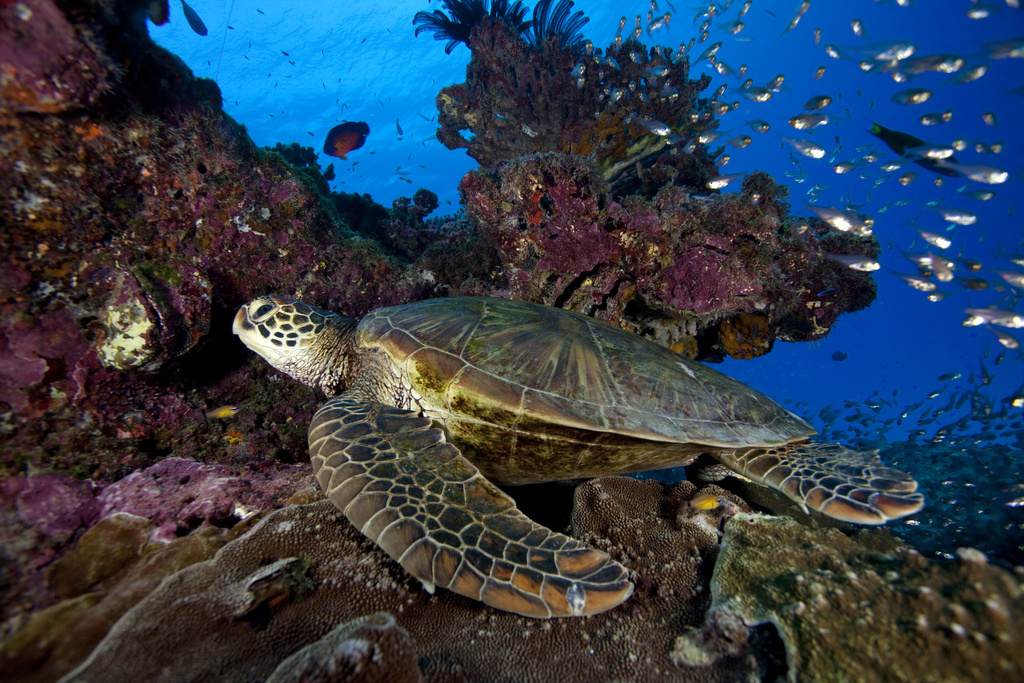Policy Conventions & Agreements - Global
Protection for wildlife & habitats is preserved in global agreementsdeal to protect planet’s biodiversity a step in the right direction
deal to protect planet’s biodiversity a step in the right direction

IFAW is relieved that world governments have brokered a deal at the 15th Conference of the Parties to the United Nations Convention on Biological Diversity to address the nature crisis facing our planet.
The Global Biodiversity Framework negotiated at this meeting sets goals and targets for nature conservation for the remainder of this decade, in a last ditch attempt to halt the nature crisis that is threatening up to a million species with extinction, as well as the natural systems that support life on Earth.
While representing the many uncomfortable compromises of two weeks of hard negotiations, the final deal recognises the need to not just halt, but also reverse, biodiversity loss by 2030.
However, despite some headline-attracting targets like protecting 30% of the planet by 2030, the text of the deal is riddled with ambiguity and is far from to the clarity of purpose required. It is hardly the inspiring call to arms needed to combat the nature crisis we face.
clear goals lacking
Particularly concerning is the lack of clear quantitative goals or targets for this decade on halting species extinctions and recovering wildlife populations. This critical gap risks undermining the whole framework, as it means there will be no measurement this decade for the most visible manifestation of nature loss—species extinction. Instead, the deadline set for action is pushed out to 2050. If global governments cannot even coalesce around a clear target to address species extinction during this critical decade, then it begs the question of how serious governments are about curbing nature loss.
While IFAW is pleased to see the headline target of conserving 30% of land and ocean by 2030, it is disappointing that the target is not more explicit about the quality of protection in such areas, to avoid the creation of more “paper parks” that are legally designated but lack the enforcement needed to achieve conservation objectives. Nonetheless, given the prior commitment of world leaders to this aim even before this conference began, we sincerely hope that the ambition of nations to see conservation gains will be realised to its full potential.
preventing future pandemics
IFAW welcomes the recognition in the final text of the role of biodiversity conservation in reducing the risk of future pandemics. These negotiations have been delayed by two years because of a pandemic that most likely emerged from wildlife exploitation. Yet, ironically, it was hard fought to ensure the final text even mentioned this concept.
We know that conserving biodiversity is one of the best routes to preventing pandemics at the source, by preventing pathogens from spilling over from wildlife to humans. The target on wildlife exploitation recognises the need to address this, alongside eliminating illegal and unsustainable exploitation of wildlife—one of the key drivers of biodiversity declines.
crunching the numbers
Possibly the biggest sticking point to the negotiations was the extent to which developed nations would provide financial resources to help developing countries implement the new Framework. After an earlier walk out by developing countries over the level of resources, countries finally settled on a deal that will see rich nations double aid for conservation by 2025 and triple it by 2030, with a dedicated new trust fund set up within the Global Environment Facility. One of the key reasons for the failure of the previous (so-called Aichi) targets was a lack of financial resources. A key demand of developing countries going into these negotiations was that any deal be backed by commensurate financial resources. While IFAW welcomes recent announcements as a start, it is clear much more financing will be required, from public and private sources, to stem the tide of nature loss.
The new Global Biodiversity Framework is a step in the right direction towards solving the nature crisis engulfing our planet. While the negotiations may have ended, many species and the natural systems that support all life on Earth still face a highly uncertain future. It is crucial that governments the world over begin implementing this Framework immediately if there is any hope of preserving life on this planet as we know it. The true test of this Framework will be whether governments can achieve it in the vital decade ahead.
Related content
Every problem has a solution, every solution needs support.
The problems we face are urgent, complicated and resistant to change. Real solutions demand creativity, hard work and involvement from people like you.